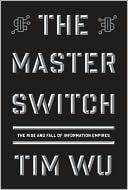More on this book
Community
Kindle Notes & Highlights
by
Tim Wu
Read between
August 10 - August 22, 2018
It is an underacknowledged truism that, just as you are what you eat, how and what you think depends on what information you are exposed to. How do you hear the voice of political leaders? Whose pain do you feel? And where do your aspirations, your dreams of good living, come from? All of these are products of the information environment.
But what if the figurative “marketplace of ideas” is lodged in the actual and less lofty markets for products of communication and culture, and these markets are closed, or so costly to enter as to admit only a few? If making yourself heard cannot be practically accomplished in an actual public square but rather depends upon some medium, and upon that medium is built an industry restricting access to it, there is no free market for speech.
As we have already seen, time and time again, it is investors as much as inventors who decide what our future will look like, and what we call genius might better be described as smarts coupled with capital.
As we shall see, defense against financial meltdowns was perhaps the driving reason for the rise of the media conglomerate. But the implications are broader than that: the shape and tenor of our current entertainment world are largely owing to the imperatives of risk management in a world where failure had become catastrophically expensive.
It is a recognition that the disposition of firms and industries is, if anything, more critical than the actions of the state in controlling who gets heard. The public square is a fine conceit, but in an information society it matters little that one is free to speak one’s mind in public; the public square, if it exists, is an information network nowadays.


